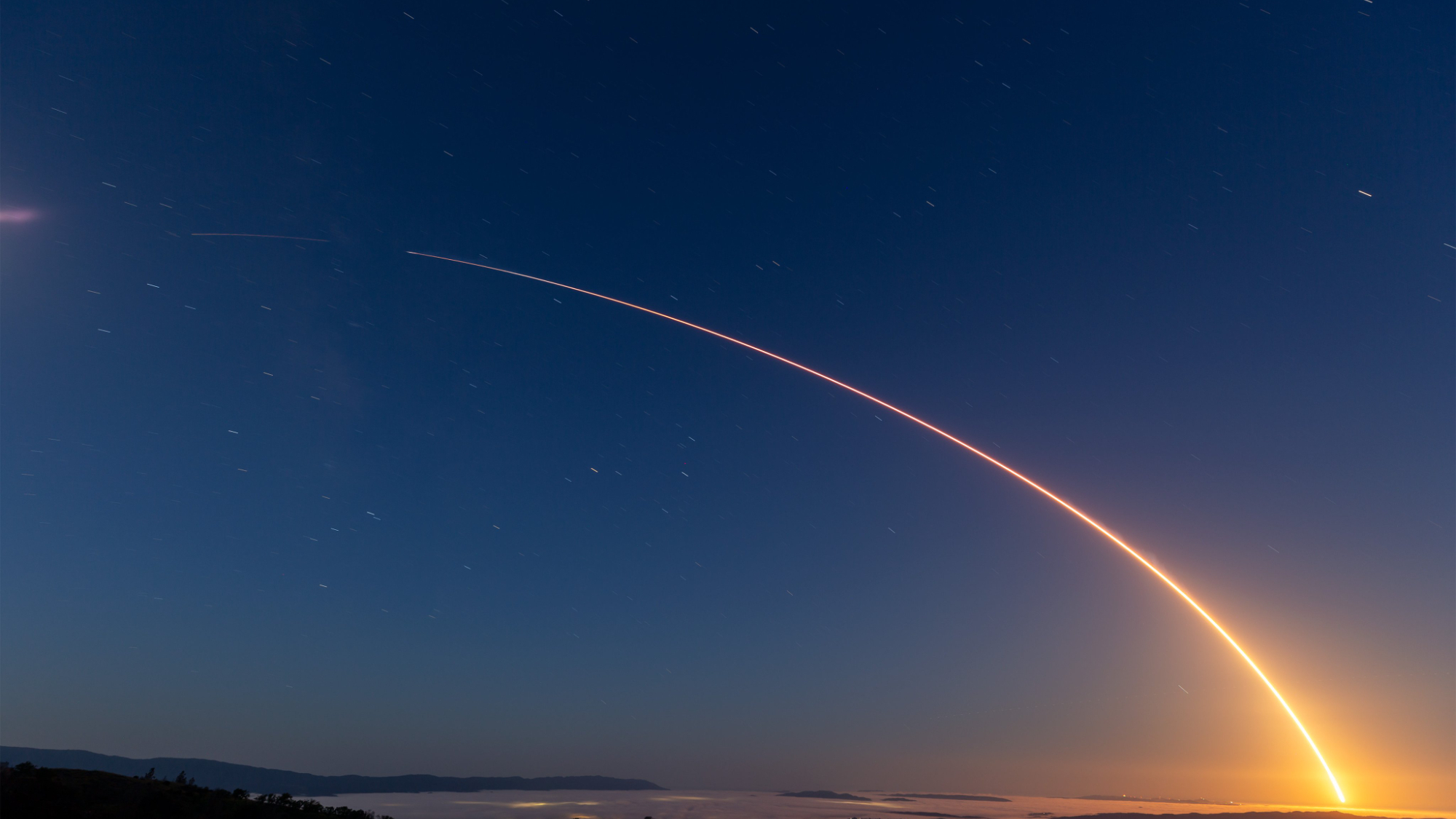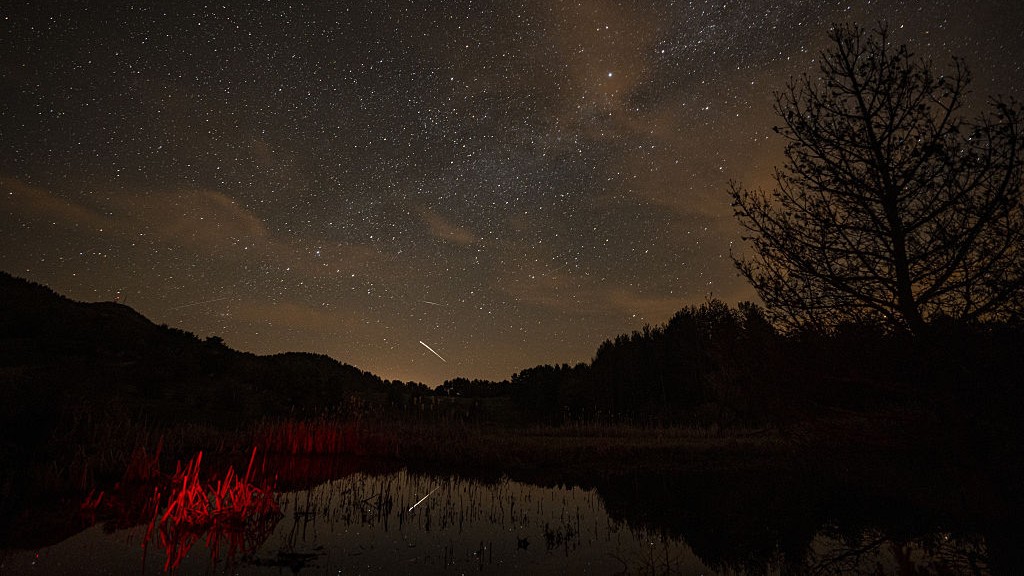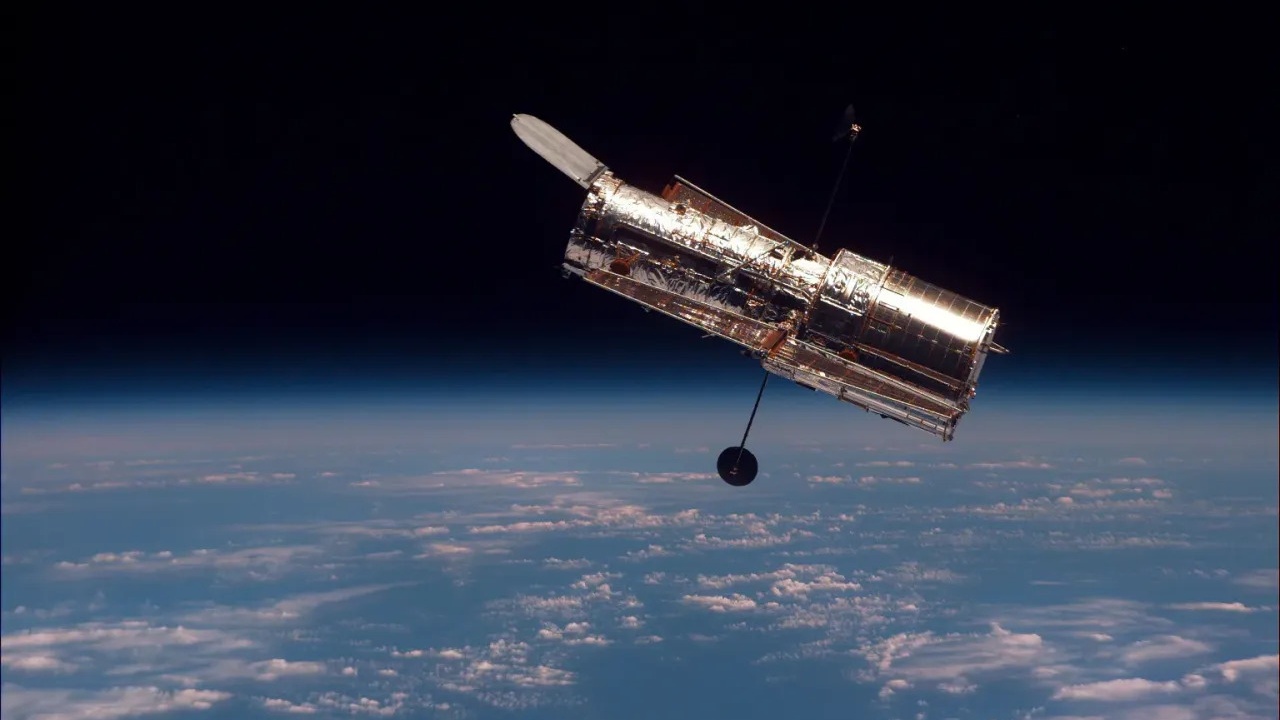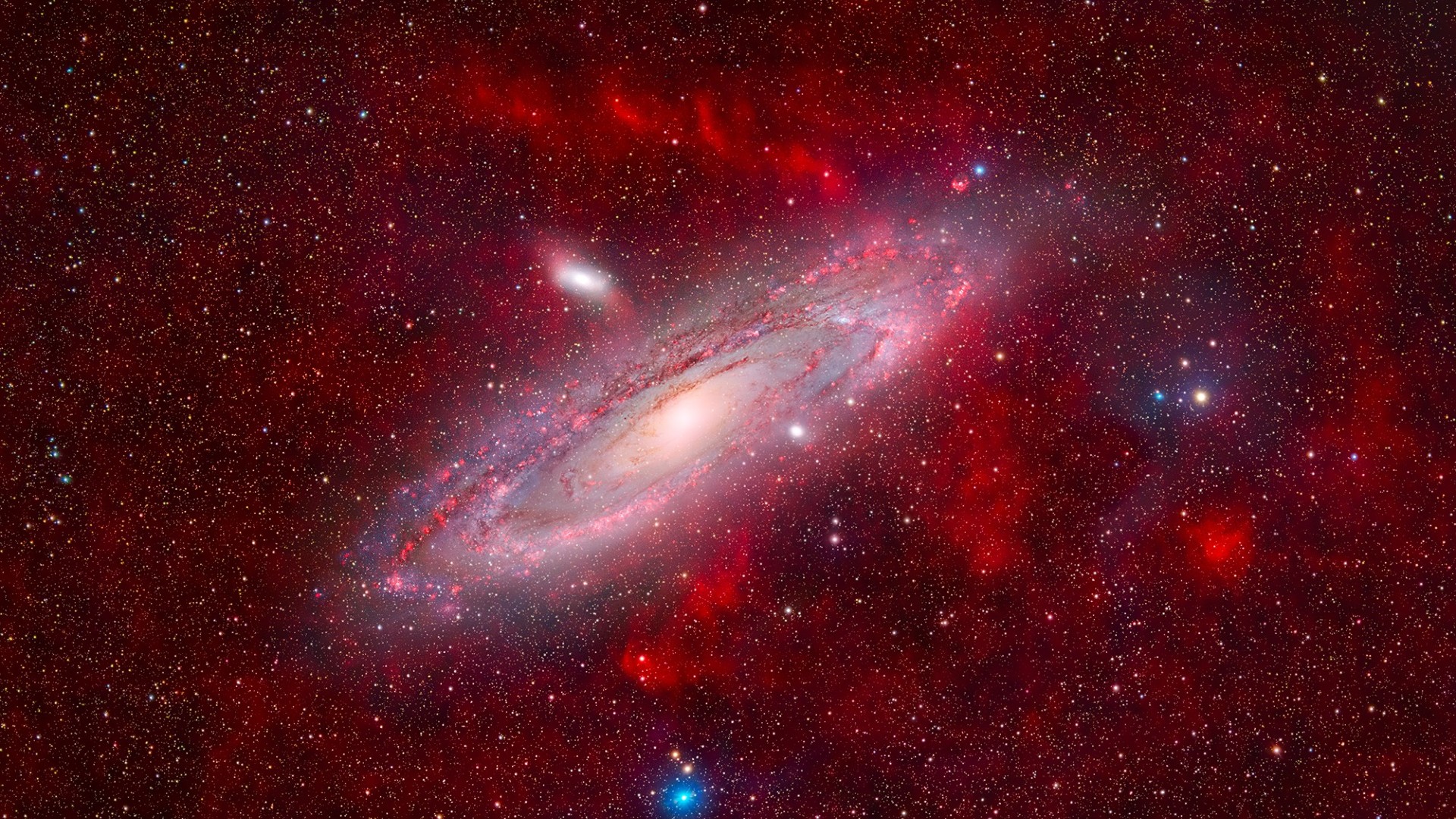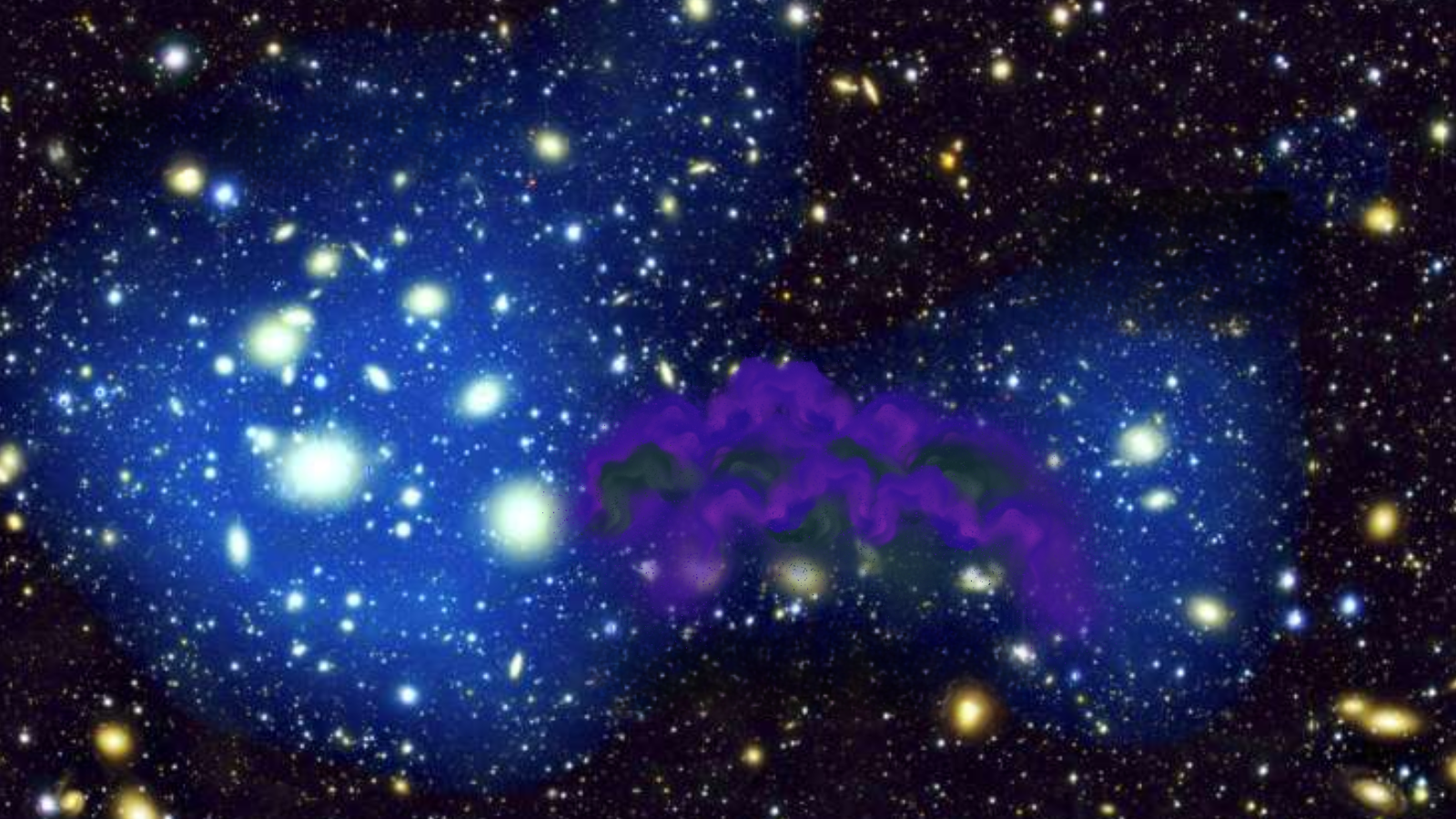Alien Planet Kepler-186f: Complete Coverage of 'Earth Cousin' Discovery
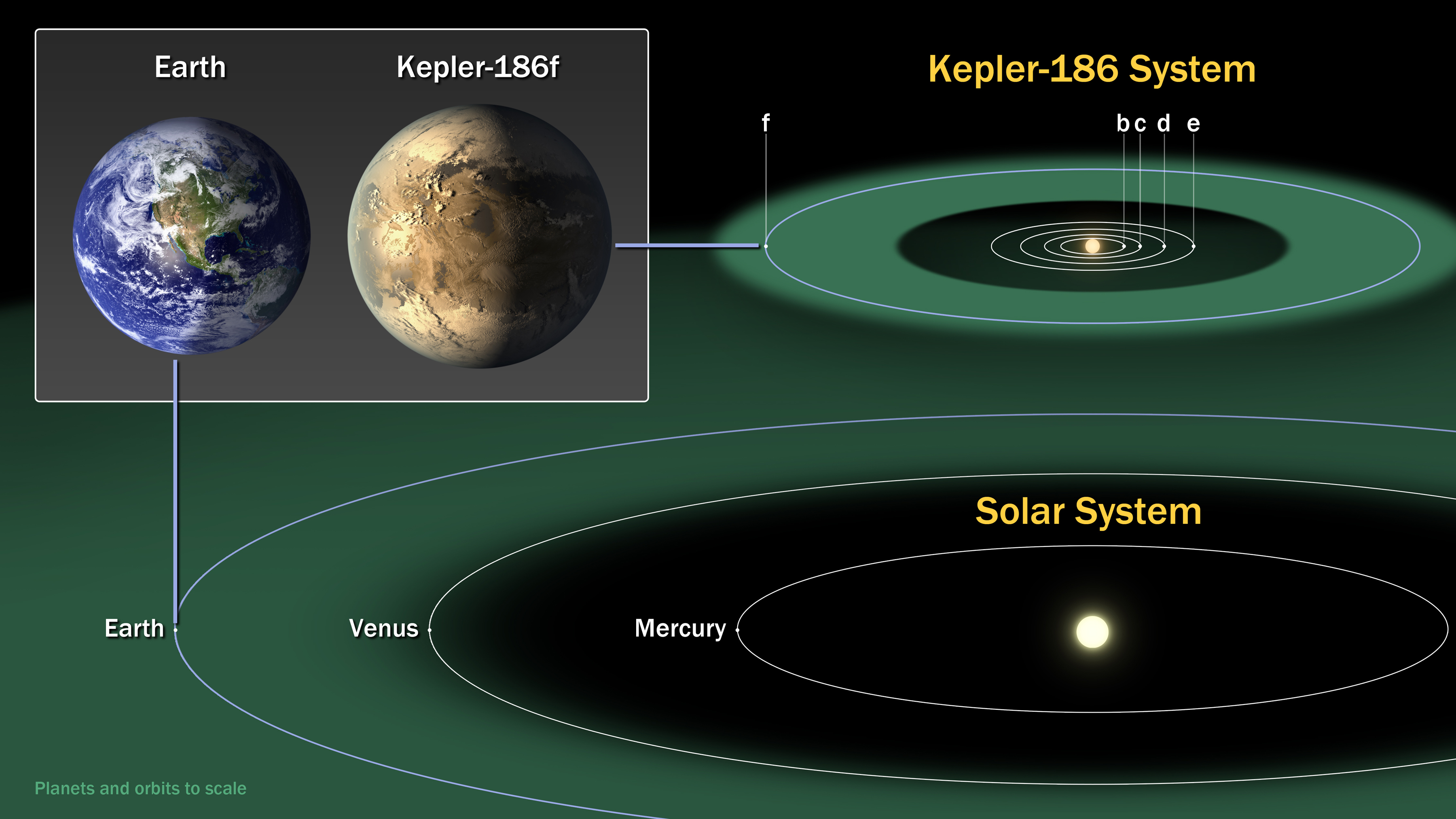
On Thursday (April 17), NASA announced the historic discovery of Kepler-186f, an alien planet 490 light-years from our own world that is nearly the size of Earth and located inside the habitable zone of its parent star.
The planet Kepler-186f was discovered by scientists using NASA's planet-hunting Kepler space telescope. The planet has a radius that is 1.1 times the radius of Earth, making it only slightly larger than our planet.
Main Story: Found! First Earth-Size Planet That Could Support Life
Scientists have discovered Kepler-186f, the first Earth-size alien planet in the habitable zone of its host star. See how so-called 'Earth cousin' might have water, and possibly life. Scroll down for Space.com's complete coverage of the historic find of Kepler-186f.
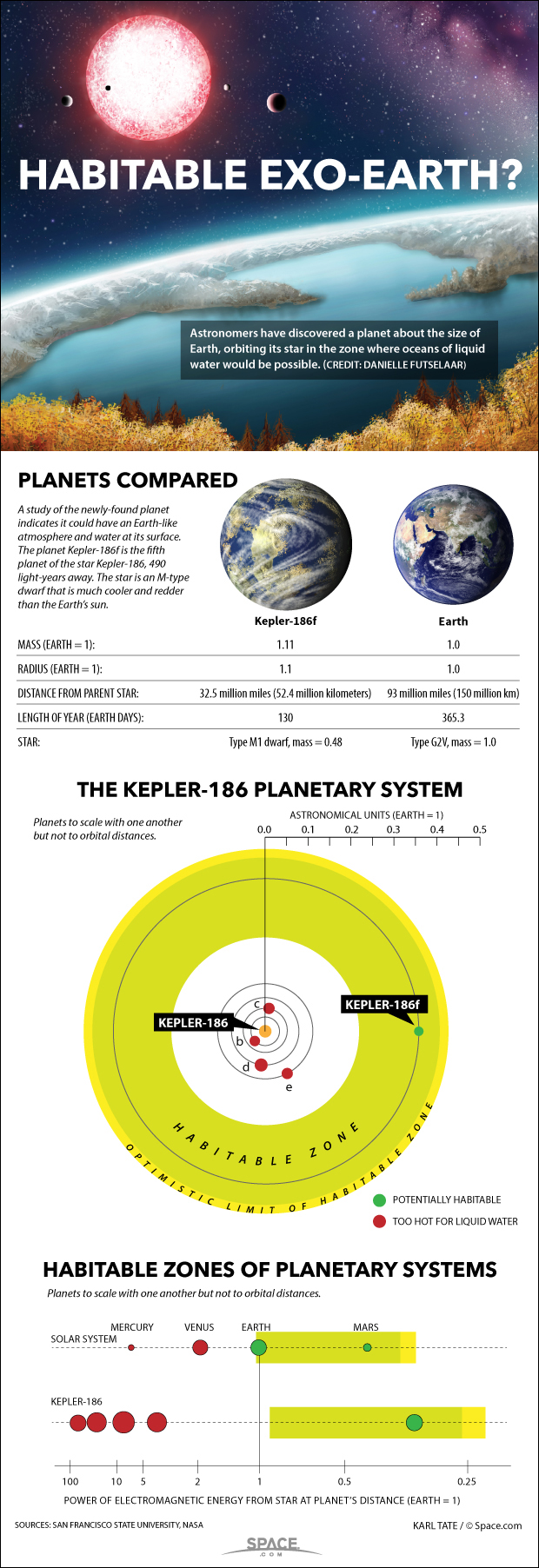
Video and Multimedia
Earth-Size Planet Kepler-186f, a Possibly Habitable Alien World (Gallery)
New Earth-Size Planet Could Have Water | Video
New Earth-Size Planet and Siblings | Theoretical Animation
Exoplanet Kepler-186f: Earth-Size World Could Support Life (Infographic)
The Search For Another Earth | Video
Alien Planet Quiz: Are You an Exoplanet Expert?
Get the Space.com Newsletter
Breaking space news, the latest updates on rocket launches, skywatching events and more!
Complete Coverage:
Friday, April 18
5 Things to Know About Alien Planet Kepler-186f, 'Earth's Cousin'
Scientists recently discovered an Earth-size planet in the habitable zone of its star. Here are five things to know about the new find.
Next Up for NASA's Planet-Hunting Kepler Telescope: Finding Earth's True Twin?
NASA's planet-hunting Kepler space telescope has just spotted Earth's cousin. Its next big find may be Earth's twin.
10 Exoplanets That Could Host Alien Life
Thursday, April 17
Found! First Earth-Size Planet That Could Support Life
Scientists have discovered Kepler-186f, the first Earth-size alien planet in the habitable zone of its host star. See how so-called 'Earth cousin' might have water, and possibly life.
'Earth Cousin' Discovery a Milestone in Search for Alien Life
The search for alien life took a big leap forward with the discovery of the exoplanet Kepler-186f, the first Earth-size world ever found in the habitable zone of a star other than the sun
Op-Ed by SETI Astronomer Seth Shostak:
Cousin of Earth: Planet Kepler-186f May Be Habitable for Life (Op-Ed)
It's the brass ring that teams of astronomers from hither to yon have tried to grab: Discovering a planet that sports an environment similar to our own. Finding Earth's cousin. And now, a team of researchers may have done it.
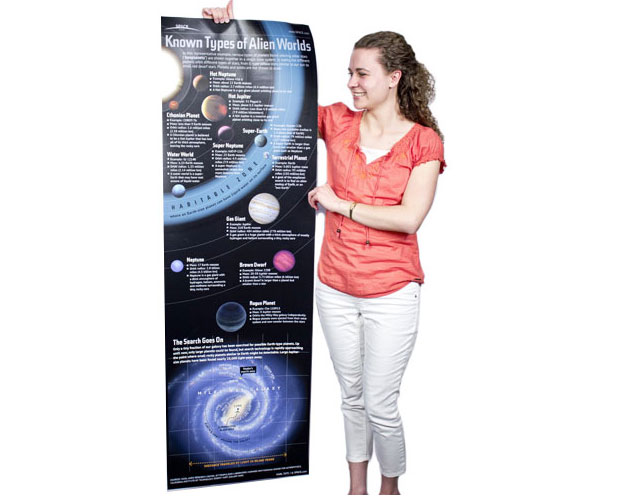
5 Exoplanets Most Likely to Host Alien Life
The five far-flung worlds most likely to host life as we know it, as determined by researchers at the University of Puerto Rico at Arecibo's Planetary Habitability Laboratory.
NASA Will Unveil New Discovery from Planet-Hunting Kepler Telescope Today @ 2pm ET
NASA will announce a new discovery by its planet-hunting Kepler space telescope today, and you can following the unveiling live online. Space agency officials and scientists will host a live news teleconference at 2 p.m. EDT (1800 GMT).
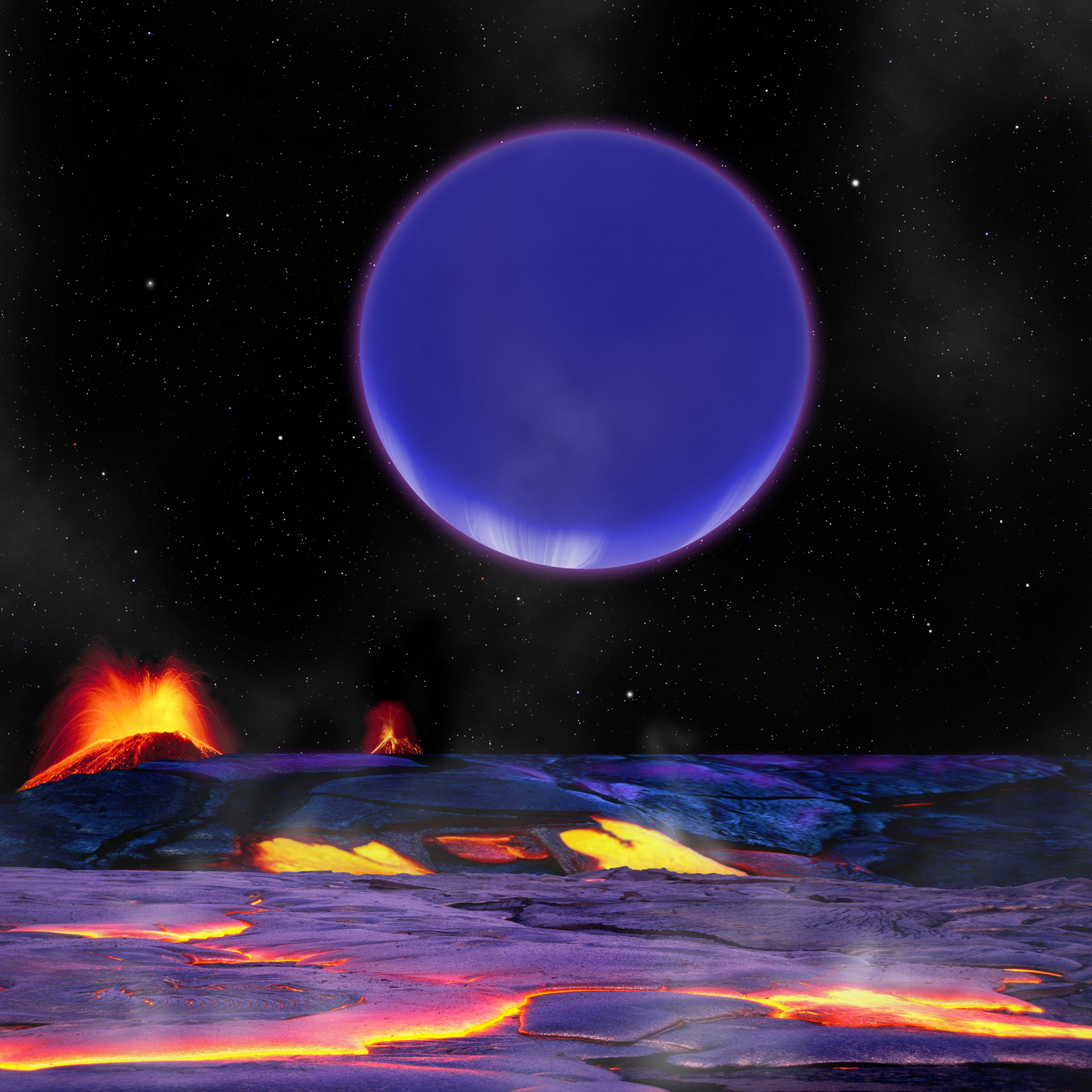
More Resources:
Gallery: A World of Kepler Planets
Hunting Alien Earths: Kepler Stares At Stars
Kepler Space Telescope: Exoplanet Hunter
NASA's Planet-Hunting Kepler Telescope Explained (Infographic)
Kepler Space Telescope's Alien Planet Bonanza Explained (Infographic)
Exoplanets: Worlds Beyond Our Solar System
Follow us @Spacedotcom, Facebook and Google+.
Join our Space Forums to keep talking space on the latest missions, night sky and more! And if you have a news tip, correction or comment, let us know at: community@space.com.

Space.com is the premier source of space exploration, innovation and astronomy news, chronicling (and celebrating) humanity's ongoing expansion across the final frontier. Originally founded in 1999, Space.com is, and always has been, the passion of writers and editors who are space fans and also trained journalists. Our current news team consists of Editor-in-Chief Tariq Malik; Editor Hanneke Weitering, Senior Space Writer Mike Wall; Senior Writer Meghan Bartels; Senior Writer Chelsea Gohd, Senior Writer Tereza Pultarova and Staff Writer Alexander Cox, focusing on e-commerce. Senior Producer Steve Spaleta oversees our space videos, with Diana Whitcroft as our Social Media Editor.




